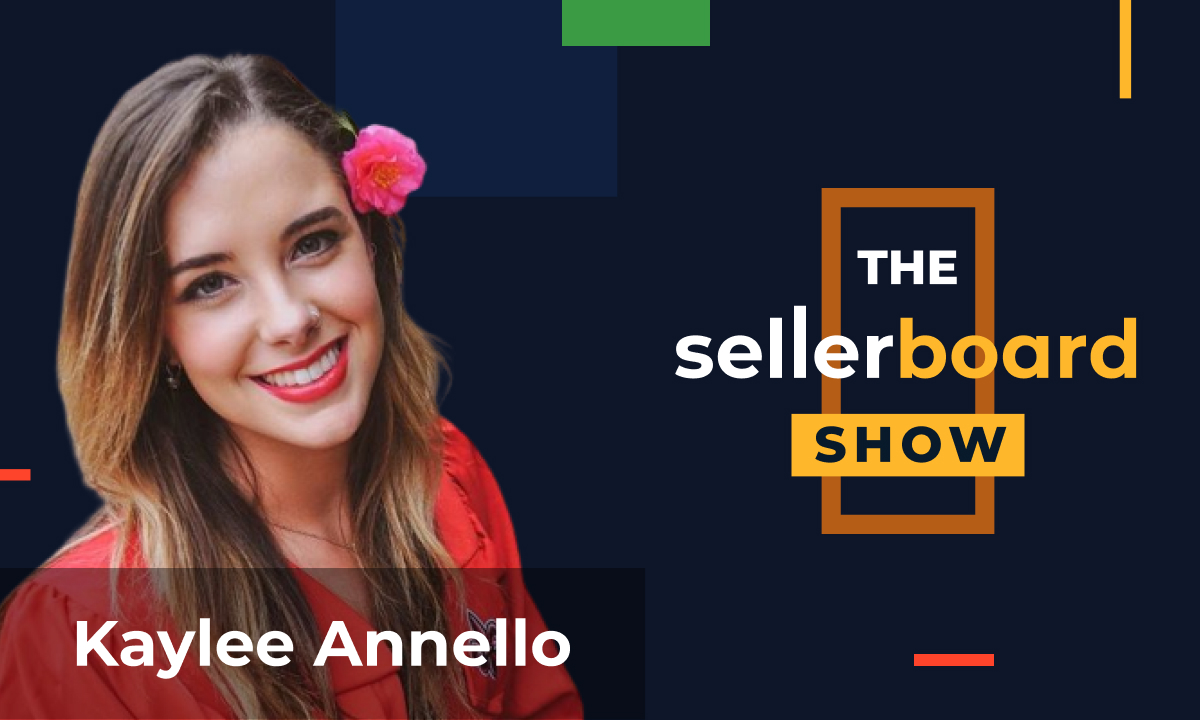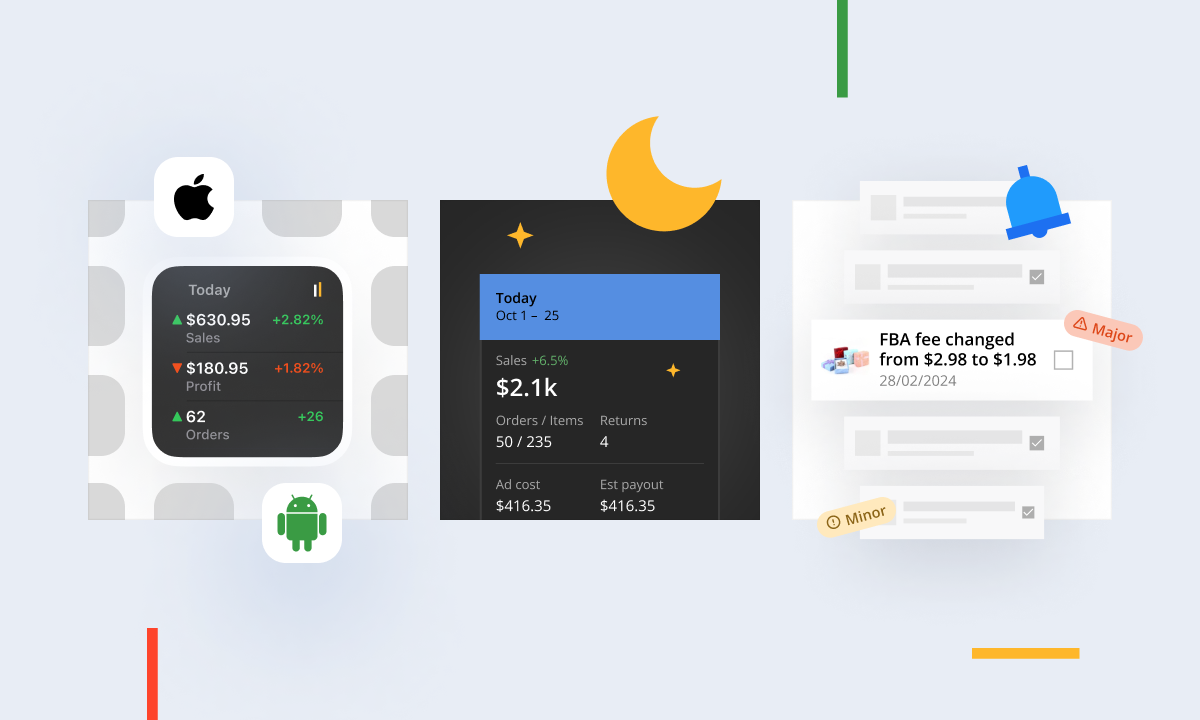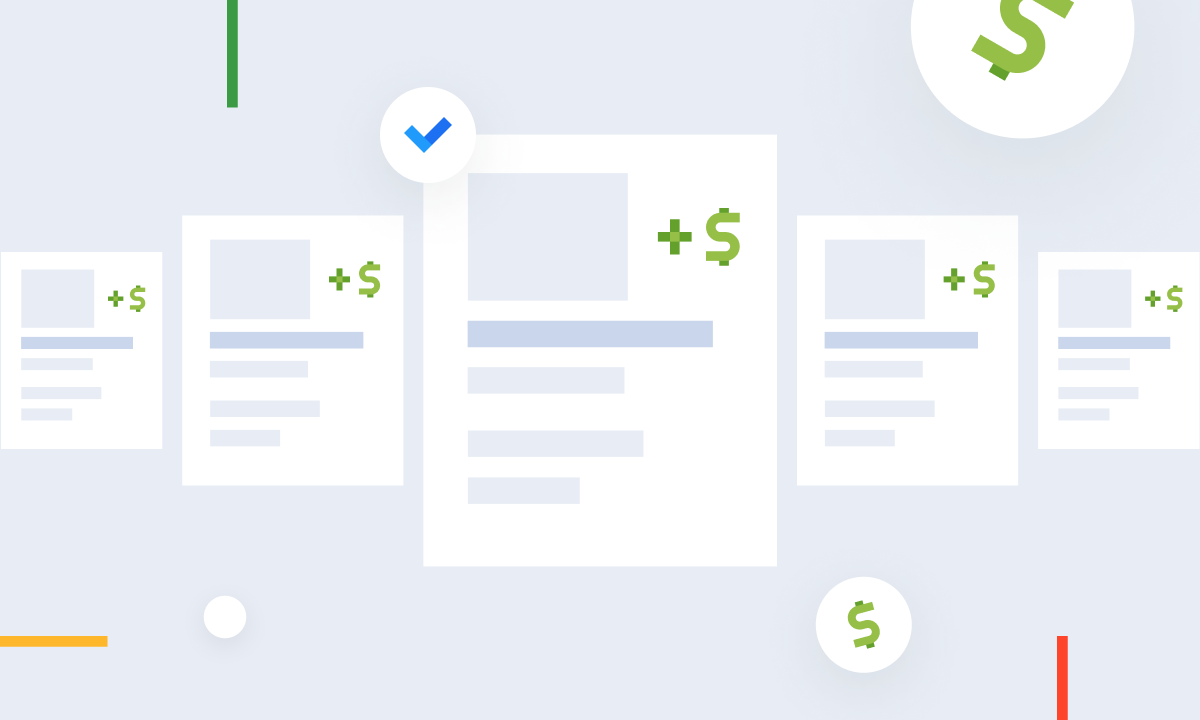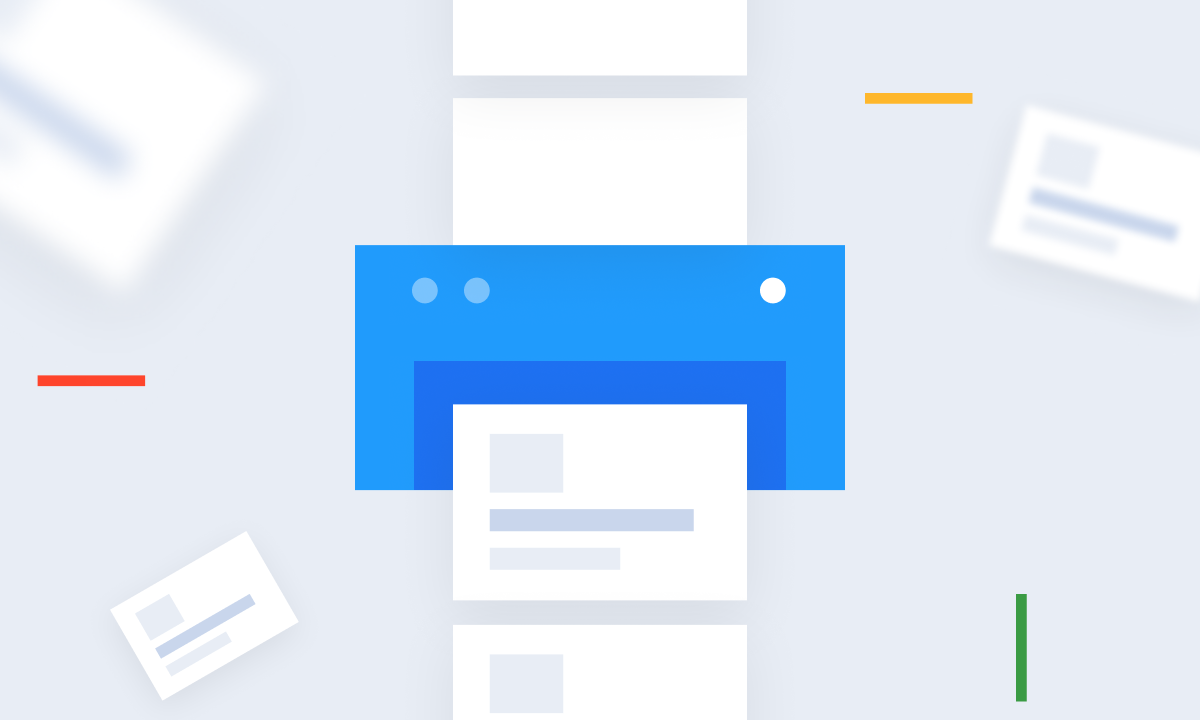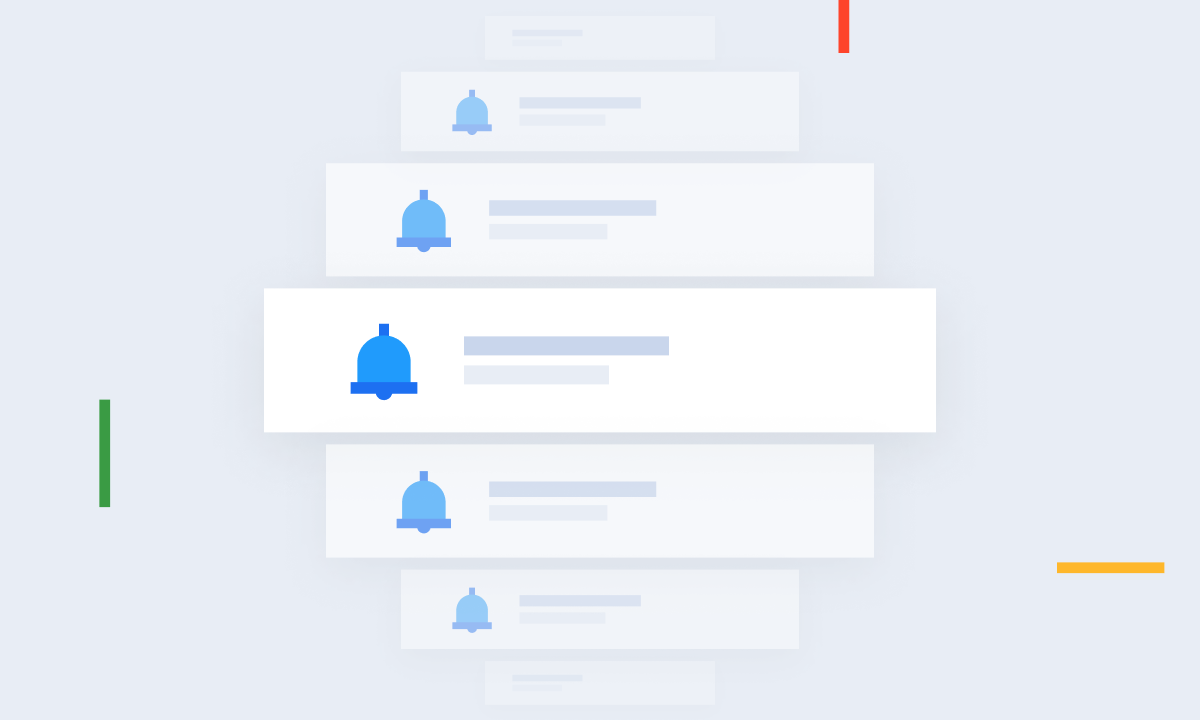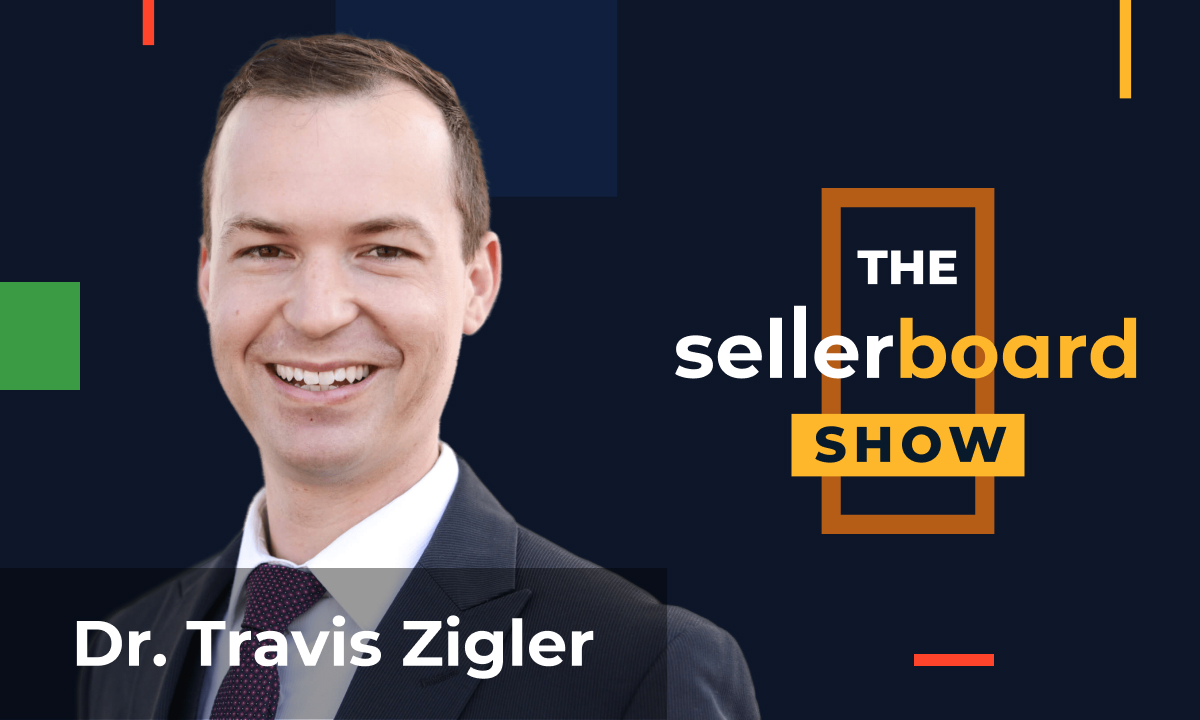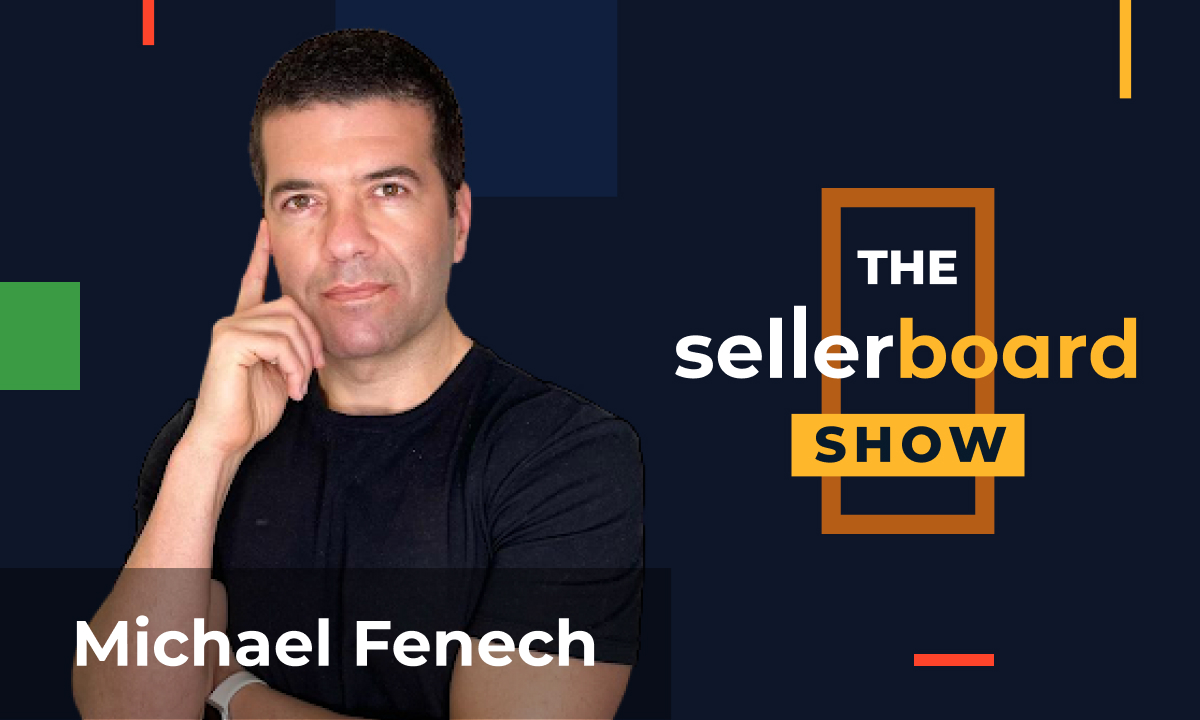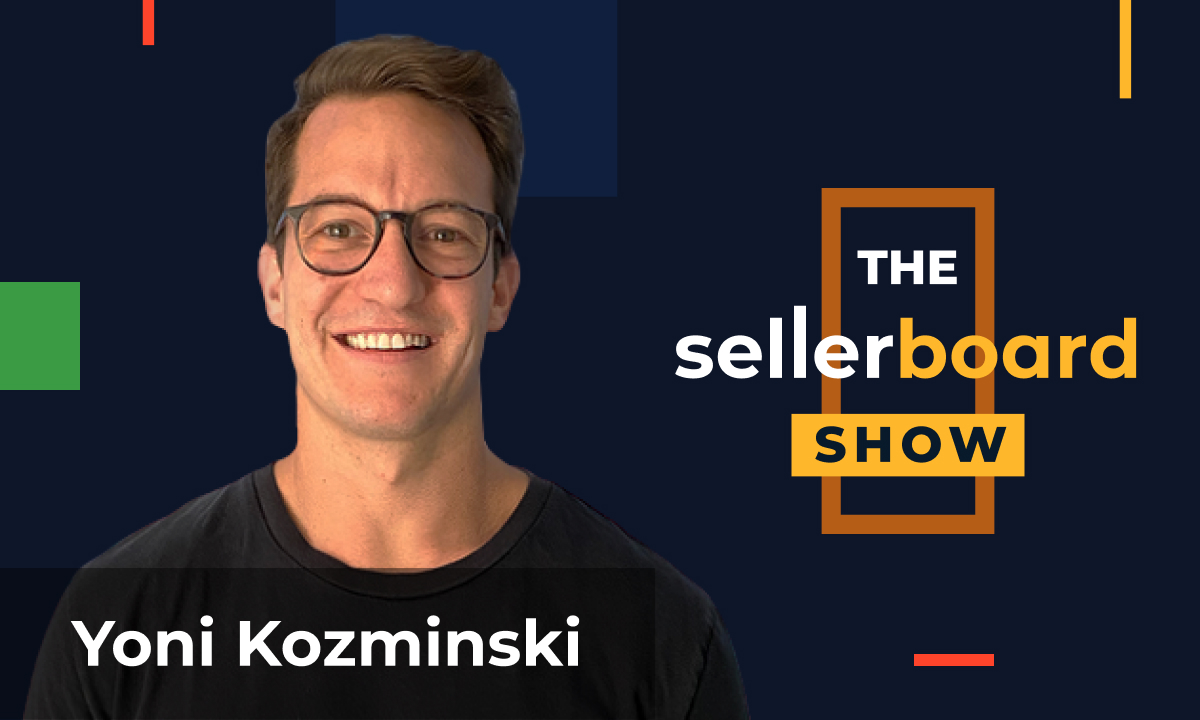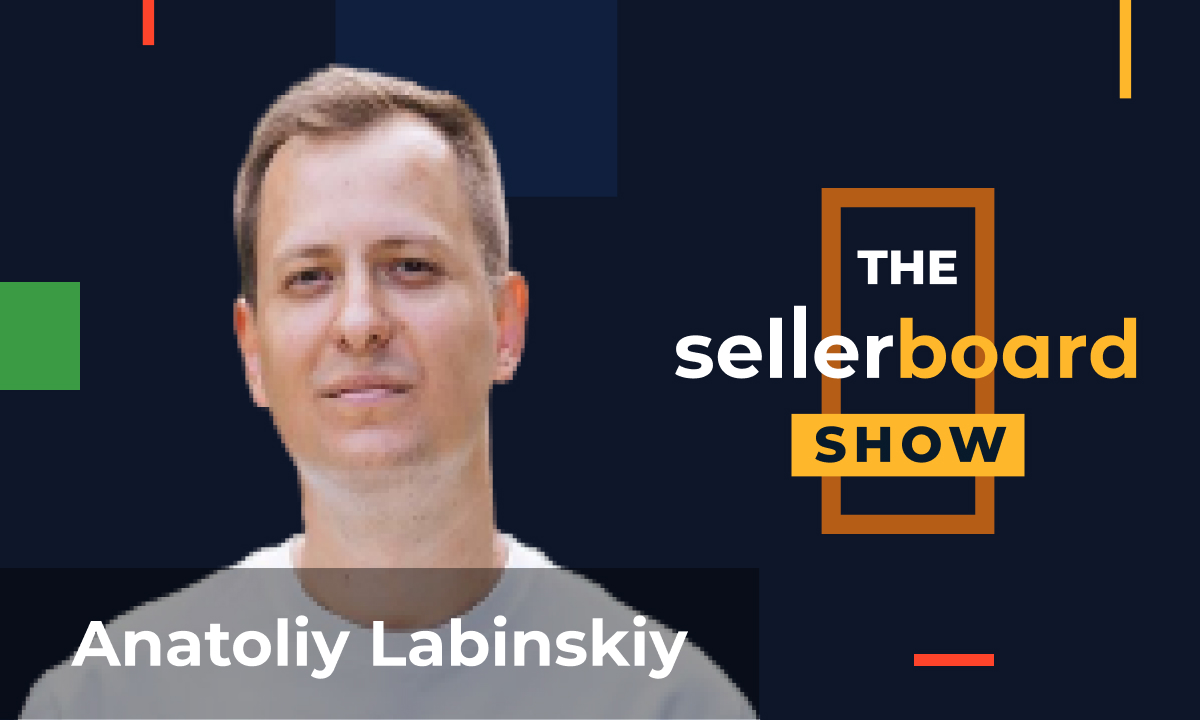We are happy to have on our new episode of The sellerboard Show Kaylee Annello – Private label Amazon seller and TikTok influencer.
Talking points:
- reasons for choosing private label over other business models;
- traits and skills required for success as a private label seller;
- sources of knowledge to start;
- strategies to grow a 50K community on TikTok;
…and much more!
Speaker1: [00:00:02] Hello everyone. Welcome to the sellerboard Show podcast. Thank you for joining in today. We have a super special guest. Her name is Kaylee and she’s an Amazon FBA seller. First of all. And then second, we’ve been working with Kaylee for quite a while and if you have been checking out our socials, mostly our TikTok channel for seller board, then you know, Kaylee and you know all of the valuable advice and knowledge that she has been sharing with you throughout all of this time. So, Kaylee, hello. Thank you so much for joining us.
Speaker2: [00:00:39] Yeah, thanks for having me. I’m excited to be here.
Speaker1: [00:00:43] Uh, sure. So, um, I have a quite a list of questions for you, actually.
Speaker2: [00:00:52] Love to see it.
Speaker1: [00:00:53] Yeah. When I was writing these questions, I think that, um, I wanted to, first of all, put myself, you know, in the place of someone who is thinking about starting an Amazon FBA business. And this is basically where all of my questions came from. So I know you, you’ve started recently and you have a very interesting story and I know that you’ve been sharing it on your socials and I’ve been following your socials for a while, so I really hope that we can share this story with our community. And yeah, so if you’re okay with that, then let’s, let’s do it.
Speaker2: [00:01:39] Yeah, for sure. You want me just to start from the beginning, Like, give the whole rundown.
Speaker1: [00:01:45] Um, I’ll guide you. I’ll guide you. Okay. So before we do that, I would really like to know more about you, about your background, where you’re coming from to do the e-commerce, you know, scene. And first of all, maybe what is your education background and what were you thinking before getting into e-commerce? Because probably you didn’t, you know, like grow up thinking, okay, I’m going to be an Amazon seller. There was something that you were thinking, Yeah.
Speaker2: [00:02:14] Yeah. I didn’t even know this was a route, but I guess my journey started very similar to, like most people when they graduate high school, you have no idea what you want to do with the rest of your life. So my background, I was a competitive gymnast for 16 years, so I always loved Kinesiology Dietetics. So whenever I went to college, I was like, Well, I don’t know what I want to do the rest of my life, but I love learning about fitness and health and wellness. So I’m majored in kinesiology, graduated and then all college. I was a personal trainer and then I was bartending. And then upon graduation, I still had to do master’s programs. And this was right when Covid hit. So I kind of started freaking out because I couldn’t do bartending. I couldn’t do personal training at the time. So I was like, okay, I guess I just have to find like a normal 9 to 5 and figure it out after that. So I got an entry level position at the university I was working for at the time, or that I went to school at, got a full time job there and I was just recruiting public speaking. So that’s where I got comfortable just talking to other people, like in front of in front of like big.
Speaker1: [00:03:21] That’s a valuable skill you’ve learned at a very good period in your life.
Speaker2: [00:03:26] Yes, I’m so grateful for it. But while I started going through that job, I realized like, I’m so grateful for it, but I don’t want to do it the rest of my life. Right? And I never knew what I wanted to do forever. I just knew what I wanted my life to look like. So I loved the idea of creating my own work schedule. I love the idea of working from wherever and then having no caps of financial success. Yeah. So I looked into different routes. I tried real estate wasn’t my jam, and then I crossed Amazon FBA and I fell in love with the idea of it because I love entrepreneurship. And then I also love that I could pursue it while having a full time job. So that’s what I did. I taught myself the entire Amazon seller process like by myself because I couldn’t afford a course or a mentor. And then I just took a bunch of notes, listened to podcasts 24 over seven on the road. And then once I felt comfortable with the process, I just went for it and I used $5,000 of my own savings working.
Speaker1: [00:04:25] Let’s get to that step by step. I have one of these questions you are already answering, but I want to, you know, do it at my own pace because I have it all planned out. I want to ask you something. So you said that there was a phase when you did some research, so you’ve analyzed all the options you had on the table regarding, you know, the the path you want to take. So an e-commerce was the one that you chose. And at that point you’ve started, you know, your education process. And my question here, how was your education process? I mean, what sources, you know, did you tap into? Maybe you follow the program of some kind of maybe you found a mentor or what was it like for you? Because it’s a very interesting and serious topic for a lot of people. There’s a lot of information out there. You know, it can be and get really overwhelming and you kind of can get drown can drown in all of the, you know, amount of the information. So what is the advice from you you could give the people who are just researching right now in the area? What would you advise, advise them to to do?
Speaker2: [00:05:37] Yeah, that’s a great question. So what I did is I just looked at a bunch of step by step tutorials, so and some of them would be like five hours long, four hours long. So I would just go through one step by step tutorial at a time and take detailed notes. And then once I did that with a few videos, I condensed my notes together. And then if there were any portions, let’s say it was confusion on product research or keyword research or sourcing, I would kind of make a note on the side and I would dig into that topic further. All right, So tons of step by step YouTube videos and then in free time, like listening to podcasts on the roads just to kind of like hear more tips and tricks and things like that. So that was my starting point with it all.
Speaker1: [00:06:22] Okay, so you didn’t invest in your education at first? Wow. Wow. That’s impressive. You know, there were some guests on the podcast right here that I talked to, and they said the that the first important investment that you should do is find a mentor and, you know, choose wisely and then dedicate yourself to everything that this person can teach you and also invest in it. So, um, you know, having someone with your, with your experience, like having no investment in the education and starting with just information that you can gather, gather for free. That’s amazing. That’s amazing.
Speaker2: [00:07:04] Right. Thank you. It was very nerve wracking, but I could only afford inventory, so I had to do it. I had to do. And I just gave it my all and went for it.
Speaker1: [00:07:13] Right, Right. That’s amazing. So, all right, then. My next question probably is about, you know, the point when you feel that you’re ready to invest most of your time into it. You know, actually, the way I’ve written down this question is what was the point when you felt like you were ready to take the leap of faith? You know, because it’s like, you know, you have your you have your 9 to 5, you have your basic income, you know, and you’re comfortable with this. You’re in this comfort zone. And then you feel like you have to start investing more of your time and resources into something uncharted, you know, and unknown. So that’s basically a decision you have to make. What was that point for you?
Speaker2: [00:07:59] So mine was kind of baby steps. Like I said, I pursued this route while I had my full time job, and after I launched, I fell in love with the field and just the endless opportunity. But I wasn’t at the point financially yet with just Amazon that I can make a full income and live lavishly. But I just knew I wanted to be a professional in the field and I wanted to work from home. So I was like, okay, I wonder what software companies that are the best or the best of the field are hiring surrounding Amazon FBA software companies, right? So I applied to a few and then that was kind of my transition into work from home. And then my entire umbrella at that point was Amazon FBA and then it was just baby steps from there and it’s a smart move.
Speaker1: [00:08:45] Kaylee That’s a very smart move. Yeah.
Speaker2: [00:08:48] I love security. So yes, I’m a risk taker, but I want to take calculated risk.
Speaker1: [00:08:54] Right, right. Uh, that sounds, that sounds impressive. Yeah. So. Okay. Um, and now my next question is when you’ve when you’ve analyzed the possibility of starting selling, starting selling on Amazon, there are different business models. Why did you choose private label? Because from a lot of people that I’ve spoke to, I hear the same thing that, you know, private label is the model that has the most risks. It requires the most investment from from the people who are starting because there’s the capital, there’s the production and everything. And besides that. So this you have to there’s a lot of, uh, okay. Not to say competition, but, but you have to get yourself and your brand into the market that’s already overwhelmed and you have something that’s totally new to the market, so you have a lot of obstacles to overcome. So it seems like it’s a more complicated model to start with in the first place. Or why did you choose private label? Over the other models.
Speaker2: [00:10:02] Yeah, great question. And there’s a few reasons to this. So with private label, you’re creating your own brand and yes you have to do product research, you know, competitor research and pick a product that you can penetrate into the market with. But if you’re just reselling products, that’s not really like your own like business and your own brand. Like I wanted to create my own brand and build intrinsic value and have a brand that has multiple product lines. So private label just fit that. You know, my wants more closely than just reselling. And I think there’s different types of selling for everyone. But private label just piqued my interest And then I loved how you could do research and take calculated risk, like I said.
Speaker1: [00:10:49] Right, Right. Never thought of it like that. I mean, you know, the fact that you want to put your name on the product, you know, and have your brand out there, that’s that’s, that’s a feeling that probably, you know, some of the people that start selling with, I don’t know, arbitrage or wholesale, maybe they come to a point where they say, okay, I want my own brand, right?
Speaker2: [00:11:12] You start from private label, you can continue to scale. You don’t have to just stay on Amazon. Like if you’re gaining that brand awareness, you can add a Shopify store, you can go to Etsy. So there’s no cap to your success and there’s just so many opportunities. That’s what I fell for.
Speaker1: [00:11:29] Nice, Nice. By the way, do you sell anywhere outside Amazon at this point or planning to do so?
Speaker2: [00:11:36] I’m planning to do so. I think once I get my product line, you know, a little more vast. But right now I’m just on Amazon and I actually still just sell one low demand product, but I’m working on my second product and it’s going to be out of my comfort zone because it has a lot of variations. So that’s where seller board is going to come in handy, helping me manage inventory bookkeeping, sure. But yeah, that’s in the works, so that’s very exciting to nice.
Speaker1: [00:12:02] Good luck with that. Thank you. Okay, so now another question came to my mind. So the product that you started with and you are currently working with, so you probably need to have a certain level of expertise, I assume, or maybe knowledge about how this product might be, you know, met by the market or how it will, you know, meet the consumer’s needs. Is it a necessary, um, I mean, is it something necessary that you need to, to this knowledge for you to have if you want to start with the product or you can just source any product product out there and just try, Do you really need to know the product?
Speaker2: [00:12:47] Yeah. You would do not want to go into private label blind. You have to look at the Amazon data. So the way I knew my product had some kind of demand was looking at that keyword search volume. How many people are looking for that exact product for a month? But it’s not just the demand. You have to look at the competition. So you’re looking at how many sellers are ranking best sellers for their categories. Then you’re looking at the seller or the number of sellers that have lower reviews for lower competition. So you really have to assess the data. And then the biggest factor for success is finding a way to differentiate your product or add value to your product that the other competitors aren’t. And that’s where that competitor research comes in. But definitely don’t just go into it blind. You want to know what you’re competing against, what the demand is, what the competition is, and how you can make your product better.
Speaker1: [00:13:39] So my question is closer, you know, to to the point where these competitor competitive research comes in. You said that you really need to understand your product. And did you really where your user of the product that you began with and how well did you know this product? I mean, this niche totally. Was it something that you were specialized in or maybe a professional consumer? Might I say, you know, someone that knows really well the all the ins and outs and the specifics and the differences, you know, in the product. So. So you really understood what product you came into or was it just a product of analysis.
Speaker2: [00:14:16] Right? So it was a mix of both. I’m definitely a consumer of my product. It’s like a very niche field. So yes, it was something I was already using. However, the one I’m selling, it’s a different variation, but I was already the target audience for my product. So I think that’s also why it made it easier for me to copyright and to like solve future customers issues and questions and concerns. So it was a little bit of both. So having that passion and like that experience, using that product just validated my research even more.
Speaker1: [00:14:51] Right? Right. That this is a part of one of the questions that I also had prepared for you. So you said that it was easier being a consumer of your own product. It was easier for you to copyright. And from here comes my next question. How do you think do private label sellers require some some specific skill set, You know, or maybe what does it take? Let me reiterate that. So what does it take to be a private label seller? I mean, what and specifically, you know, as you being bootstrapped, starting alone with or maybe like a lot of people with the limited budget and not being able to hire, you know, specialists and form a team, what skill set does it take, you know, to do it? How do you think.
Speaker2: [00:15:42] Yeah. Oh, I feel like there’s so many. I mean, the very first skill set from starting from the very beginning, it’s going to be patience and not cutting corners. Like you have to give every single phase of the process your all because every single part works together to achieve success, right? So you need patience. You need to give every single, you know, phase the time and energy it deserves. You need to get rid of the you’re going to get rich quick mindset. Like most of the time, that’s never going to happen. You’re going to have to spend time, energy and some money to get where you want to be one day. So you need to just get that out of your head and just give it your all.
Speaker1: [00:16:25] It’s complicated. Sorry to interrupt you. It’s complicated because when you see all of these sports cars, you know that the the the people that promote, you know, selling on Amazon, the drive and, you know, the lifestyle that they uphold, then when you get the impression, you know, that’s the final goal and you can get there in a year or two years. But, you know, getting rid of that makes it just a bit more real, you know, something that you really can start doing and stop dreaming, dreaming about it, you know?
Speaker2: [00:16:57] Exactly. And you need to fall in love with, like the journey, like the struggle, like learning the process, making mistakes, figuring out why, you know, that issue happened and then how to make it better moving forward. Yeah, I lost my little train of thought, but yeah.
Speaker1: [00:17:15] Sorry I interrupted you, but no, you’re good. I really. I really like the point that you have to change your mindset because the mindset is something, you know, a lot of people talk about. And I heard before, even during this discussion, this podcast, that you have to get rid of this poor mindset, you know, just to get an understanding that you can actually gain more. You can get in control of your, you know, time, first of all of your finances, get that liberty that you, you know, chasing. But you need to specifically be realistic about the outcome that you will have because otherwise you can get really disappointed at a very early stage, you know, and just quit. So this is a very good point.
Speaker2: [00:18:01] That hundred percent like you got to fall in love with the journey because that’s what life is about, right? So you got to just fall in love with every part of the process and the results are going to come if you keep your eye on your end goal. If you want success, what does it take to get there? It takes resilience. It takes accountability. It takes patience. It takes all these things.
Speaker1: [00:18:22] Right, Right. I love it. Nice. Okay. So I’m coming back to my questions. And now my next question is. Um. How did it. How long did it take for you from the very start when you understood that, okay, I’m ready. I got the necessary knowledge to just to start to the point when you got your first sale, what was the time span? Yeah.
Speaker2: [00:18:52] So from interest from the very beginning, it took me about six months, which is actually really quick when you think about it long term, like with education and actually going through the process, which is another reason I love private label and selling on Amazon. It wouldn’t take you five years to start up a business. But yeah, it took me about six months to get from starting point up to my first sale.
Speaker1: [00:19:15] That’s crazy. That’s crazy. Right, Right. I I’m pretty sure there are a lot of people right now listening to the podcast that envy you that say, how come six months? It’s unbelievable.
Speaker2: [00:19:29] Hey, if I could do it, literally, anyone can.
Speaker1: [00:19:33] Um, I really want to believe in that. Maybe. Maybe your sports background, your background kicked in and maybe, you know.
Speaker3: [00:19:41] The competitive side of me.
Speaker1: [00:19:42] Yeah, the competitive side. Exactly. Yeah. All right. Um, now that you said that, it took you six months to get your first sale, do you remember actually your first sale?
Speaker3: [00:19:55] Yes. And tell me about it. It was yeah. So it was.
Speaker2: [00:19:59] Interesting because, like, if anyone’s selling on Amazon, you know, you’re not actually live until inventory arrives to Amazon and you never know how long it’s actually going to take. So I knew my inventory was getting scanned in, but I didn’t know my product was live. So I actually woke up in the morning, looked at my seller Central app, and I was like, Oh my gosh, I’m live and I got a sale. So it was just really exciting. And whenever I make like funny videos saying Make money while you sleep, I’m like, That was my first experience on Amazon. Like I made money while I was sleeping, so it’s really cool.
Speaker1: [00:20:31] Okay, ladies and gentlemen, that’s living proof that it’s it’s it’s real. It’s real. You can get money while you sleep if you want to know how scaly she’s going to tell you.
Speaker3: [00:20:42] Yes, I got you.
Speaker1: [00:20:45] All right. Um, now that we’ve talked about the time needed for you to start, what was your initial capital to start? How much money did you start with and what did you spend it on?
Speaker3: [00:20:58] Yes.
Speaker2: [00:20:59] So I only had $5,000 in my savings account. That’s all I had. That’s why I couldn’t afford a course or anything like that. Like I mentioned, um, the biggest bulk of my spend was going to be the inventory order and shipping. So I started with a higher number of units. I definitely recommend starting with less now that I know what I’m doing, but I started with a thousand units, so my inventory order itself was around 3500 shipping. I want to say it was around 1500, give or take. Um, and for most of you who don’t know, like shipping costs just depends on like the size and weight of your bulk order. So that was like the biggest factor for like where my money was being spent. Um, everything else was like software tools to help me do this product research, you know, listing, optimization, things like that. Photography is super important. Um, and then I had LLC costs. But yeah, those were like my, my biggest costs for starting up.
Speaker1: [00:22:01] That sounds like, um, you know, a basic minimum that you need. No, no extra extra splashing or anything else.
Speaker3: [00:22:12] Right?
Speaker2: [00:22:12] And then if you have a lower budget too, you can start with less units. Or if you know you only have $2,000 to spend, don’t try to sell $100 product that costs you $50 to source per unit so you can work with your budget. You just have to lay out, you know, your overall spend beforehand so you make decisions that are going to work with your budget.
Speaker1: [00:22:32] Right? Right. Got it. So another question that came to my mind right now. When you found the product, when you did the research and you understood, okay, this is the product I want to start with, how did you source the, um, the supplier? I mean, I mean, it’s a totally for me. For example, if I imagine myself tomorrow trying to source a supplier, I don’t even know where to start. I mean, what could be, you know, the, the, the unknown obstacles or maybe things they need to consider or the risks that I am willing to take, you know, when giving, I don’t know, for 2000, $3,000 to someone that’s on another side of of of of the planet and I’m just transferring my money and waiting several weeks for the merchandise to come. So how did you do it? I mean, what was the process for you like?
Speaker3: [00:23:28] Yes. So that was.
Speaker2: [00:23:29] A big stressor. And that’s why I watched a million more YouTube videos before I actually got to the point of paying for inventory. But whenever you’re finding a supplier on Alibaba, you just have to know what to look for. So I personally like to look for manufacturers over trade companies. Trade companies are paying extra money because there’s a middleman involved. And then if there’s an issue with your order, they have to go the manufacturer to recreate it, right? So I like to look for manufacturers. So that was a filter. You need trade assurance. So if anything goes wrong with your order, you pay $3,000 for inventory and it doesn’t match the sample quality, right? You are protected under Alibaba trade insurance. So that’s like you have to have that verified seller. You definitely want that protection too. You don’t want to trust just anyone with your money like we just said. And then I like to look for years of experience. So if you see someone is just they just had their they’ve only been on Alibaba for like a year. I personally like to look for closer to ten or more because that way they’ve had experience with all different types of sellers. They know how to help me as a newbie Amazon seller, give tips and tricks and things like that. Yep. Um, what else? And then I also looked for certifications and that’s just going to depend on your product. So like, for example, if you’re selling a baby product that’s a gated category. So if you don’t have a child protection certificate from your supplier, you’re the one who’s going to have to pay thousands of dollars for that. So certifications and then just a niche. So I wanted my supplier to have the same niche as my brand. So that’s everything I looked for. And then I probably ended up reaching out to ten suppliers that met everything I wanted, narrowed it down to three ordered samples from my final two, and then chose my final supplier after that.
Speaker1: [00:25:16] Nice, nice. Um, I don’t know what what sources of knowledge, you know, you found for yourself when you got the knowledge from. But it really from the story that you have seems like someone was guiding you like it.
Speaker3: [00:25:31] Really?
Speaker1: [00:25:31] Thank you. It’s really someone ironed out, you know, paved the way for you and just said, Kelly, do this. Do this. Okay. Right now from ten we go to three now, then from three we go to one and then you choose one.
Speaker3: [00:25:43] Well, thank you. It was just, I.
Speaker2: [00:25:45] Think my having ADHD too. I really just wanted like I just focused on each part of the process. And if I had any confusion, I was binge researching it and then just taking notes so I could refer back to it later. So that helped me.
Speaker3: [00:25:59] Got it.
Speaker1: [00:26:00] Got it. Um, another question now that I have is from the very start, from the very, the first batch of products did you that you received, that you ordered and received to this point today, did you manage already to make any improvements to the product, change it in a way or no, maybe? I don’t know. Um, I.
Speaker2: [00:26:21] Did, but it wasn’t to the product itself because the product quality was actually great. Um, but I did make improvements to like directions because that was some customer feedback. It’s a very, very niche product, so there’s multiple ways you can use it. So I did enhance directions. I did enhance images multiple times. I’ve re-optimized my listing multiple times, but the product itself, I haven’t had to make improvements yet.
Speaker1: [00:26:48] Right. Got it. Now that you’ve brought this up, another thing that always, you know, pops up in my mind when I think about a private label is the fact that you when you’re selling, when you’re creating a brand. Right now, most people don’t realize that a brand is not only a logo placed on the product, so you have to invest in directions or any, you know, documentation that needs to to instruct the user on how to use it. You are accountable for, you know, how well it’s written, how informative it is, how well you know, the final customer. Ideally will get this emotional bond with your product or won’t get this bond and just treat it like something he used and forgot. Because when creating a brand, me as someone coming, you know, from a marketing perspective. So I know that creating a brand is actually an investment in creating this bond and connection with the customer. So he will be emotionally attached to you and then probably ideally will be a promoter or an evangelist of the of the brand. You know, that’s something that most of the brands they, you know, they want to reach that level. So when you’re creating a brand, you’re creating a visual identity for it, the packaging or you’re creating a whole experience for a customer. So for example, for me, all of these unboxing videos on YouTube, you know, it’s totally about the experience of someone who’s getting. Something boxed, something packaged. And then from the very first unwrapping motion, this is the experience that the customer gets from your brand and your totally responsible for it. So it’s a complicated story, but it’s very interesting.
Speaker2: [00:28:43] Yes, 100%. Like with branding too. Like it goes back to like understanding your target audience and then creating your own brand. It’s all about the customer experience, like you said. So like with my logo, with my packaging, with my brand name, I had all that in mind when I created it. It’s very girly, very sassy. My copywriting, that’s kind of the way I communicate and I think being my target audience, that kind of just helped me do the branding side even better. And I really gave a lot of time and energy to my packaging and like to my color scheme and to my fonts and to my insert card to make it an even better experience. So you really want to just like be very empathetic to your target audience, put yourself in their shoes. What would you want to see? What would you want to read? What would you want to experience on opening your product or using your product?
Speaker1: [00:29:37] Sure, exactly. Now, this is the point when we are coming back to the question that I asked you in the beginning. Do you have to be a user of the product or not? So this is probably, you know, what makes the difference if you are a user, if you understand how the product is perceived by the target audience being a user of the product, then you have the ability to to invest in this brand, this approach, you know, to create the customer experience in the end. Nice, nice. So my next question is now how much how much time are you already with the product in the market for how long?
Speaker2: [00:30:15] Oh, like how long have I been selling this one product? Yeah, about a year and a half now.
Speaker1: [00:30:19] A year and a half. A year and a half. Nice. So what is your, let’s say, Amazon business owner routine? Like look like today? I mean, how many hours per day do you invest in working with your product?
Speaker3: [00:30:37] I would say like it varies.
Speaker2: [00:30:40] So I’d say like daily it just kind of depends. But it’s very, very minimal, right? Like what my normal routine would be would be logging into Seller Central, looking at my prior day sales just to see what was going on. And then the first thing I always do is optimize my campaigns for pay per click ads, because if you’re not optimizing your bids constantly, like it’s very easy to lose money and seller board, you’ll have a whole tool for that. So you’ll understand how quickly that spend can get out of hand. So I’ll always optimize my pay per click ads, but I’d really say it’s like very minimal, like maybe 1 to 3 hours a week max. Like once you get up to product launch and after that’s the least you’re going to work, you are going to work the absolute hardest and most getting up to product launch.
Speaker1: [00:31:31] Okay, okay. Got it. So I liked I liked a comparison that I think that. Yeah, I think I heard on a podcast from Jim Cockrum. He said that, you know a business, any kind of business, it’s like a rocket. So when a rocket launches into space, the 80% of the fuel is burnt in the first seconds of the launch. So that’s the total amount of energy you need to spend in the very beginning. So for any family, for anyone that wants to start their business, that the hardest time when you just start and invest everything that you have. But then it’s going to be easier once you get up from the ground.
Speaker2: [00:32:10] That was perfect analogy. Yes, 100%.
Speaker1: [00:32:16] All right. Um, so now maybe you have any advice that you could share with someone that’s. No, no, sorry, Sorry. I want to ask you another question before us. Before we get to the advice part, I want to ask you this today. Uh, if you would start over for any reason, would you still choose private label?
Speaker2: [00:32:45] Oh, yeah, 100%. Like, that’s not even a question in my mind. It’s just I’m diehard private label for various reasons. Um, now, did I make mistakes in my private label journey? Yes, especially being self-taught. But I would always choose private label.
Speaker1: [00:33:04] Okay. Okay. So my next question would be normally why, but I think I already know why. Because this is the journey that you enjoy. I mean, and the the brand that you associate yourself with is something that you take pride in. So that’s beautiful.
Speaker3: [00:33:21] It’s like my.
Speaker2: [00:33:21] Little baby, like, don’t have children. So, like, this business is my baby.
Speaker1: [00:33:26] Yeah, Yeah. And do you consider yourself a creative person?
Speaker2: [00:33:33] I think so.
Speaker1: [00:33:34] So this is maybe one of the other reasons, you know, that you choose something that really can somehow promote your ideas. So something you can invest your yourself as a creative person in because, you know, selling with arbitrage or wholesale, there’s not a lot of a whole lot of space to to get creative with.
Speaker3: [00:33:56] Yeah.
Speaker2: [00:33:56] And I guess like, that’s exactly why I do love private label because there’s just so many different ways you can take it and spin it and make it your own. So it just makes it more personal, more exciting. So yeah, I love the creativity side of it for sure.
Speaker1: [00:34:13] So all of you creative people thinking about starting an Amazon FBA business go for private label.
Speaker3: [00:34:19] Yes, do it.
Speaker1: [00:34:22] All right. Yeah. So now let’s get back to the advice question. What having your experience now and one and a half year journey with starting and actively running a private label, what advice would you give for people who want to start with private label today?
Speaker2: [00:34:43] Yeah, um, just take it one step at a time. If you look at the full picture, you’re going to get overwhelmed. So just take one step at a time. What’s the first step? Just sign up for Amazon Seller Central and then from there you’re like, Okay, well I have this account. Let me start doing product research. So focus one step at a time. But like I said, give each phase your all your the quality of your brand is only going to be as strong as the quality of your product and the product you choose. So focus most of your energy on that product research and competitive research and game plan. How are you going to make it better? And then when you’re contacting suppliers, don’t settle for the cheapest or most convenient supplier. Try to find your customers the highest quality supplier possible so they’re going to have the best experience. Invest in amazing photography because images are most important. Optimize your listing and then run pay per click ads from launch and constantly optimize. And if you do all those things, you will do okay. I promise.
Speaker1: [00:35:41] Nice. One more thing that you missed. You’ve got to know your numbers when you are already up and running because you have to understand whether you’re profitable or not. Shameless plug. Use seller board. Yes. Yeah. So thank you for that. Um, now I have one more question that it’s not actually, but maybe it’s in a way related to selling on Amazon. You have a pretty decent community on TikTok, so you have like 50,000 or close to 50,000 followers on TikTok.
Speaker3: [00:36:15] Yes, it’s crazy.
Speaker2: [00:36:16] I don’t even know how that happened.
Speaker1: [00:36:18] How did it happen?
Speaker2: [00:36:20] Um, so whenever I was working at the Can I say it, I used to work at helium ten.
Speaker3: [00:36:26] Yeah.
Speaker2: [00:36:26] Yeah, sure. And I was in the affiliate department, so at the time, we weren’t allowed to be affiliate, so I was teaching people how to teach their audience how to sell on Amazon and how to promote it and make money online. Um, but whenever layoffs happen, okay, let me backtrack. So I wasn’t allowed to be an affiliate, so I was like, you know what? I’m just going to, like, share some Amazon tips and tricks on TikTok. Just see what happens. And it blew up like from the very beginning. And then once layoffs happened, I was like, well, I’m this tiktok’s growing. I guess I’ll just keep doing that thing. And I became an affiliate marketer for them. And then I started teaching for a course called Freedom by FBA. And then now I work with seller board. So it all just kind of took off from getting laid off. So it’s very interesting how life works.
Speaker1: [00:37:18] Yeah, you’ve just managed to transform it into an opportunity for yourself. That’s a good approach. That’s a good, yeah, a good touch on, on on handling these kind of situations. Right, Right. Got it. Um, now, one more question. Um, maybe you can, I don’t know. Do you promote your product anywhere else outside Amazon?
Speaker2: [00:37:43] Not right.
Speaker3: [00:37:44] Now.
Speaker2: [00:37:45] Think I’m, like, such a perfectionist that I want to get my brand and all my product lines to like a certain point of success before I just, like, share it on social media. Yeah, especially since I’m working in the Amazon seller space. Um, but I once I have my next product launched, I do want to start a TikTok too, since that’s my little. Yeah. Right now it’s like evident.
Speaker1: [00:38:10] It’s something that’s right there in front of you. I mean, you just have to connect the dots between the product that you have and the knowledge that you gain. How to grow a TikTok community, just, you know, to get the final results, like something that needs to be done.
Speaker2: [00:38:24] Yeah, it’s 100%. So have like a whole to do list and the works. But right now I’m just focusing on this next product launch, but I definitely need to get on TikTok marketing. But if there’s someone who’s not interested in like being your own content creator, you can always like, reach out to different influencers and be like, Hey, I have this Amazon product that just launched. Like, are you willing to promote it? And there are some micro influencers. They are so grateful that you even thought about them to promote your product, right? So there’s so many different ways to market your product outside of just pay per click ads. That’s just something that’s still on my to do list to do.
Speaker1: [00:39:04] Got it. Got it. Just to close the TikTok theme. Um, we’ve talked before about TikTok and at the point when you just starting doing content for seller board, maybe you can share with the people that you know are interested in this, in just how to, you know, create content for TikTok in order for it to have more traction on the platform. You know, just to share a piece of your, you know, secret sauce, a piece of the recipe.
Speaker3: [00:39:33] Yeah.
Speaker2: [00:39:34] I think the main thing that really made my content take off was being very vulnerable. And what is it? Very direct about results. So I was very vulnerable talking about my process and I’m like, I worked three jobs. I only had $5,000 in savings and this is how much I actually made in a year of selling. So it was just very like vulnerable because people can hate and they can say, Oh, like that’s nothing. $50,000 in revenue. I do that in my sleep, you know, But it meant something to me. So having that vulnerability and then showing actual honest results or giving honest tips and tricks or sharing mistakes you made being very relatable, that helps. So don’t just say, Oh, you can get rich quick online. Like people want to see more like what does it actually look like? And that’s what made it take off.
Speaker1: [00:40:28] Amazing. I totally agree with that. This is something that I’ve been observing recently on Twitter because I’m just trying to follow these discussions that sellers have on Twitter and when they, you know, follow each other and just start discussions and comment. And I think that I’ve really seen as a pattern is the fact that when people share their very basic stories, day to day stories and their results, at the end of the day, it’s like very engaging. They have lots of comments, lots of people just supporting them, like giving them, you know, words of affirmation. And for one story in particular was very it was an example for me. I just saw a guy who was doing retail arbitrage and he just posted that. Right. I’ve visited several stores today. This store, this store, this store. I’ve spent so much money today on products in total, this is how much I spent on gas today. This is how many hours I’ve spent today. It was like a breakdown of his day as a as a retail arbitrage seller. And he got crazy comments. I mean, just tens, dozens of comments there. And everyone was supporting him and say and saying thank you for sharing this. And I really.
Speaker3: [00:41:49] Think that that’s so interesting.
Speaker1: [00:41:51] Right, Right. And then I saw that there are tons of conversations like this. And I feel that, like you said, when it’s relatable and when you know, it’s something that’s more real, even if it makes you vulnerable, it takes the idea of being successful on Amazon from, you know, the the imaginary world of Lamborghinis, you know, and being crazy rich and stuff like that and makes it more achievable. And this is why people tend to, you know, to communicate and engage with the ones who are closer to them rather than the ones that just live an unimaginable lifestyle.
Speaker3: [00:42:28] Right.
Speaker1: [00:42:28] I think this is the magic behind it.
Speaker2: [00:42:30] So I love that, too. And the fact you just said it like I just bought an official like camera camera like a vlogging camera. Right. And I’m not big on YouTube. I just share my shorts. But I was like, okay, what if I share? Are like a day in my life as an Amazon seller. But then when I’m recording just the little things I do, I’m like, Is this even, like entertaining? Would people like this? And I got in my head. So I feel like that’s a sign that I should just do that. And then another point too, if you see Get Rich Quick content, someone selling you something, whether it’s a software company, whether it’s a course, if they’re not showing you the ins and outs and like the actual journey, they’re probably trying to sell you something, right? So I think that’s why people love that relatable humanistic content.
Speaker1: [00:43:16] Exactly. Exactly. Nice. I love that. I totally agree with that. Right. Right. Now now that we have I think pretty much of all of the questions covered, um, let’s tell the people that are listening or watching the podcast, how can they find you online, follow you and the content that you are creating. Maybe you’re just potentially grow your audience on YouTube with the videos that you are just trying to to start and do. Um, just how can they reach out to you?
Speaker2: [00:43:51] Yeah. So my main channels, it’s k b k y, b a and then FBA and then that’s my TikTok and my YouTube. I don’t have an Instagram. It’s just like my personal Instagram. Um, and then I do have an extra TikTok that’s more for like my helium ten work and that’s just Amazon FBA tutorials but follow FBA.
Speaker1: [00:44:13] Right, right. Everyone listening or watching follow k FBA. Right. Yeah I think we’ll, we’ll do, we’ll do maybe a QR code or something and place it on the video.
Speaker2: [00:44:24] Just send all everything to.
Speaker3: [00:44:26] Right.
Speaker1: [00:44:26] All right, Kelly, one last question. Um, I really ask everyone because it really it’s, this is something that’s interesting for me personally. Um, what is the thing that motivates you most in the work that you do? What do you enjoy most?
Speaker2: [00:44:44] Mhm. Okay. So my day to day life, I’m always helping Amazon sellers and like helping students. So what fuels me is my knowledge and like my education is actually helping people achieve success. So I love helping other people and sharing my journey with others and helping them learn from my mistakes. So that motivates me. And then just reaching my fullest potential. Like I never want to just settle or be content. So just always striving for better and more and growth. That fuels me the most too.
Speaker1: [00:45:21] Nice. Nice. I love that you’re still hungry. One year and a half in and you’re still hungry. That’s amazing.
Speaker3: [00:45:29] I’m gonna stay hungry, too.
Speaker1: [00:45:31] Nice, Kaylee. So thank you so much for the amazing conversation we had. I really appreciate you coming to the podcast. Thank you once again for creating the wonderful content that you do for TikTok, for sellerboard. Continue doing it. Everyone listening and watching. Go to the sellerboard, TikTok channel and listen what to what Kaylee has to to tell you and, you know, to to teach you.
Speaker3: [00:45:57] Yes.
Speaker2: [00:45:58] All good.
Speaker3: [00:45:58] Things.
Speaker1: [00:46:00] Right. All right. Thank you so much. Talk to you soon. Bye bye.
Speaker3: [00:46:06] Bye. Thanks, Alex. That.
